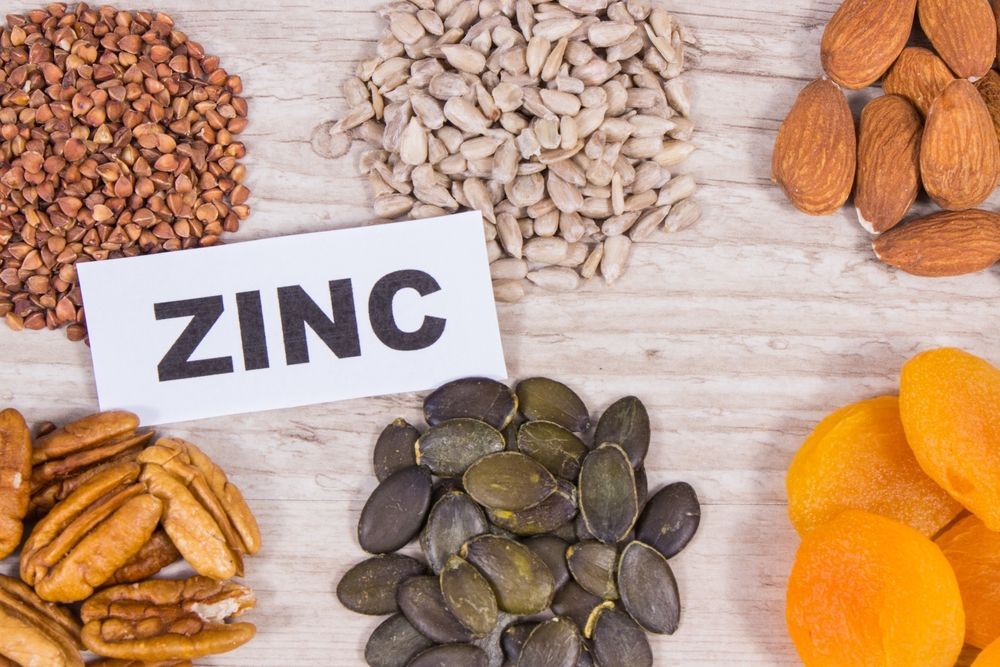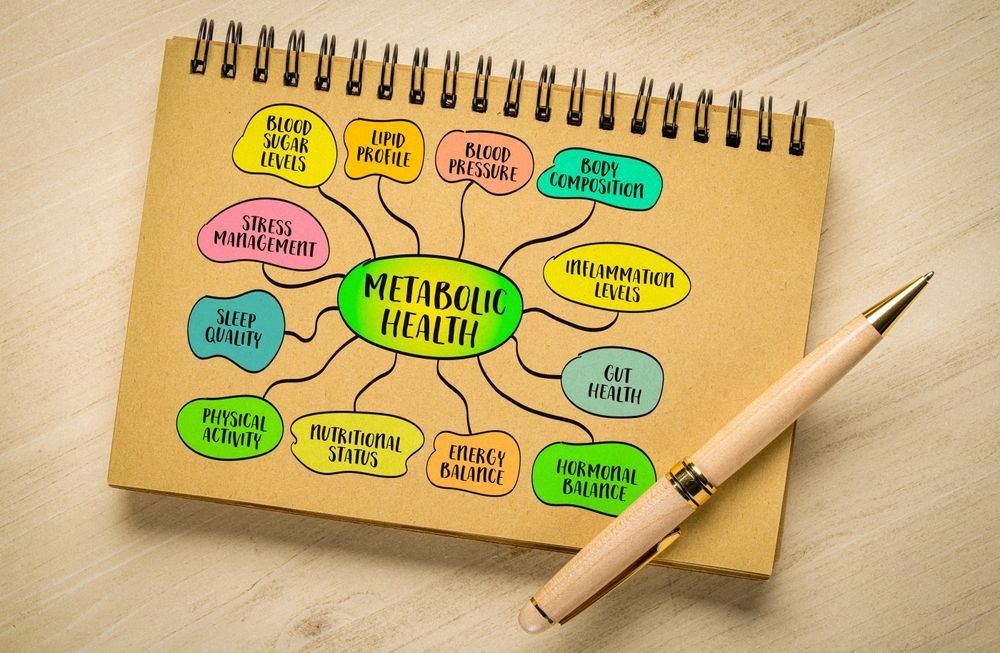The Benefits of Zinc IV Therapy for Immune Health

Zinc IV therapy has gained recognition for its potential benefits in supporting immune health. As we delve deeper into this topic, we will explore the essential nature of zinc, the concept of IV therapy, and the advantages this method may offer. We will also discuss safety considerations and determine who can benefit most from this treatment.
Understanding Zinc and Its Role in the Body
The Essential Nature of Zinc
Zinc is a trace element that plays a crucial role in various bodily functions. It is involved in numerous biological processes, including cellular metabolism, DNA synthesis, and protein synthesis. Despite being required in small amounts, zinc is essential for maintaining overall health.
It contributes significantly to the function of many enzymes, supporting processes that help the body function optimally. Since our bodies cannot store zinc, regular intake through diet or supplements is vital for maintaining adequate levels. Foods rich in zinc include meat, shellfish, legumes, seeds, nuts, dairy, and whole grains, making it relatively easy to incorporate into a balanced diet. However, certain dietary components, such as phytates found in grains and legumes, can inhibit zinc absorption, emphasizing the importance of dietary variety.
Zinc's Role in Immune Function
One of the most notable functions of zinc is its vital role in the immune system. It supports the development and activation of immune cells, such as neutrophils and macrophages, which are essential for a robust immune response. Zinc deficiency can impair these immune cells, leading to an increased susceptibility to infections.
Additionally, zinc plays a part in regulating inflammation. Proper zinc levels can help maintain a balanced inflammatory response, which is critical for managing infections without causing excessive harm to the body. Research has shown that adequate zinc levels can shorten the duration of colds and may even reduce the severity of respiratory infections. Furthermore, zinc's antioxidant properties help combat oxidative stress, which can damage cells and tissues, thereby further supporting the immune system's ability to function efficiently.
The Concept of IV Therapy
The Basics of Intravenous Therapy
Intravenous (IV) therapy is a method of delivering fluids, medications, or nutrients directly into the bloodstream through a vein. This approach allows for rapid absorption and ensures that the substances administered are readily available for use by the body. IV therapy is commonly used in medical settings, but its applications have expanded to include nutritional supplementation.
The procedure typically involves a small catheter inserted into a vein, making it minimally invasive. Patients can receive treatment in a clinical setting or even in the comfort of their homes, depending on their specific needs and the recommendations of healthcare professionals. The flexibility of IV therapy has made it an appealing option for those seeking to enhance their health and wellness, as it can be tailored to meet individual requirements, whether for hydration, vitamin replenishment, or medication administration.
Why Choose IV Therapy Over Oral Supplements?
Oral supplements can often pose challenges in absorption due to factors like digestive issues, food interactions, and varying bioavailability. In contrast, IV therapy bypasses these barriers, enabling the nutrient to enter the bloodstream directly.
This method is particularly beneficial for individuals who have difficulty absorbing nutrients through the gastrointestinal tract, such as those with certain gastrointestinal disorders. Additionally, IV therapy can provide higher doses than oral supplements without the risk of gastrointestinal upset. For example, athletes may use IV therapy to quickly replenish electrolytes and fluids after intense training or competition, enhancing recovery times and overall performance. Furthermore, IV therapy can be customized to include a blend of vitamins, minerals, and antioxidants, allowing for a comprehensive approach to health that addresses specific deficiencies and boosts overall vitality.
The Advantages of Zinc IV Therapy
Immediate Absorption and Its Benefits
One of the most significant advantages of zinc IV therapy is the immediate absorption of zinc into the bloodstream. This rapid delivery allows for quick intervention during times of need, such as during illness or periods of heightened stress on the immune system.
The body can utilize the zinc more effectively through IV therapy, leading to quicker improvements in immune function compared to traditional oral supplements.
The Impact on Immune Health
Research indicates that zinc IV therapy can significantly enhance immune function, especially for individuals with low zinc levels. By restoring zinc to optimal levels, this therapy can help reduce the incidence of infection and improve overall health outcomes.
Furthermore, for those undergoing recovery from illness or those experiencing immune system suppression, zinc IV therapy might provide the support necessary to aid their recovery and enhance their resilience against pathogens.
The Safety and Potential Side Effects of Zinc IV Therapy
Precautions in Zinc IV Therapy
While zinc IV therapy can offer multiple health benefits, it is essential to approach it under professional guidance. Healthcare providers should assess an individual's health status, identify potential contraindications, and customize dosage to avoid toxicity associated with excessive zinc levels.
Patients should also inform their providers about any existing medical conditions or medications they are taking to ensure a safe treatment experience.
Recognizing and Managing Potential Side Effects
Although generally safe when administered correctly, zinc IV therapy can present some side effects. Common side effects might include nausea, dizziness, and a metallic taste in the mouth. Rarely, it can lead to more severe reactions such as allergic responses or complications related to vein infiltration.
Monitoring during treatment and addressing any side effects promptly can ensure patient safety and optimize the therapeutic experience. Regular follow-ups can also help adapt the treatment plan to individual needs and responses.
Who Can Benefit from Zinc IV Therapy?
Individuals with Immune Deficiencies
People who have immune deficiencies, whether due to genetic conditions, certain illnesses, or prolonged stress, may find zinc IV therapy particularly beneficial. By restoring zinc levels, they can support their immune system's functionality and reduce their risk of infections.
Athletes and High-Performance Individuals
Athletes and those with active lifestyles may deplete their zinc levels due to high physical demands. Zinc IV therapy can aid in recovery, enhance performance, and support overall health, allowing them to maintain their training regimens without interruption.
The Elderly and Zinc IV Therapy
As we age, our body's ability to absorb nutrients can diminish. For elderly individuals, zinc IV therapy can serve as an effective way to replenish zinc levels, thereby supporting their immune health, cognitive function, and overall well-being.
In conclusion, zinc IV therapy presents a promising option for enhancing immune health across various populations. With its rapid absorption and significant impact on immune function, it can be a valuable addition to health management strategies. However, professional guidance is essential to ensure safety and efficacy.










